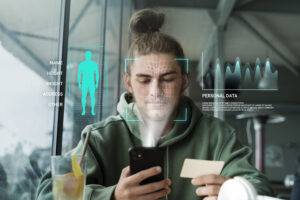IntroductionMobile applications for eating disorders (EDs) offer flexible, cost-effective delivery of evidence-based interventions. Nevertheless, challenges persist in terms of user engagement and compliance. The INTERconNEcT-EDs program was developed as a guided self-help (GSH) intervention integrating multimedia content, peer-led support, and group therapy via the aChiral Content app. The present study evaluated the usability and user experience of the aChiral Content mobile application, which was utilized to deliver the INTERconNEcT-EDs program to individuals diagnosed with EDs or disordered eating symptoms.MethodsA mixed methods design was employed. A total of sixteen participants, comprising eleven outpatients and five members of the community, utilized the application for a period of four days. Quantitative data were collected using the System Usability Scale (SUS), while qualitative feedback was obtained using “think aloud” tasks and a semi-structured interview. The interview-based data was subjected to thematic analysis.ResultsThe application attained a mean SUS score of 73.3 (SD = 8.16), denoting satisfactory usability. The analysis of the qualitative feedback indicated that the self-help video-clips and workbook were perceived as being useful, emotionally resonant, and motivating, thus indicating high levels of engagement. The integration of content creators with personal experience of the condition was met with appreciation by users, who characterized this as fostering empathy and perceived support. The forum group and online interpersonal group sessions promoted a sense of community, emotional sharing, and peer support, helping users to feel less isolated. Moreover, certain usability issues were identified and addressed with a view to implementation.ConclusionsThe aChiral Content application exhibited satisfactory levels of usability and acceptability among individuals diagnosed with ED. The integration of user-centred design methodologies, multimedia resources, and the facilitation of peer involvement has been demonstrated to enhance engagement levels. These findings lend support to the potential of the app for wider implementation and scalable use in digital interventions for ED.
Artificial intelligence in healthcare: applications, challenges, and future directions. A narrative review informed by international, multidisciplinary expertise
ObjectivesThis narrative review evaluates the role of artificial intelligence (AI) in healthcare, summarizing its historical evolution, current applications across medical and surgical specialties, and implications



